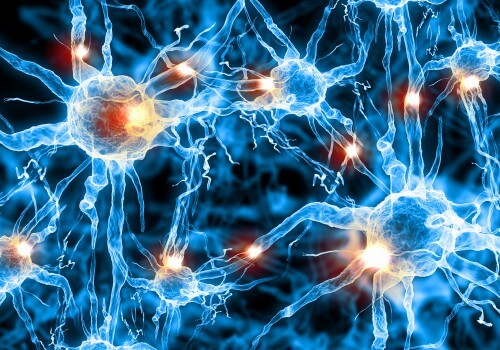Our nervous system is not able to operate for a long time in a state of high arousal. The reason for this lies in the adaptation mechanisms activated by all the sensory systems in our body, which regulate the response of nerve cells to various stimuli.

The legend about the boy who shouted "wolf wolf" for no reason, until the people of the village did not believe him in case of real distress, is not just a good story. It turns out that it reflects a deep biological truth: our nervous system is not able to operate for a long time in a state of high arousal. The reason for this lies in the adaptation mechanisms activated by all the sensory systems in our body, which regulate the response of nerve cells to various stimuli. Among other things, the phenomenon of adaptation is responsible for the fact that after a few minutes we will be able to hold a conversation in a noisy room, we will be able to read a book after moving from a lighted room to a semi-dark room, and we will not be aware of the clothes touching our bodies.
It seems that the adaptation is designed to overcome the gap between the vast range of stimuli that the nervous system perceives and its limited means of processing. The volume of sound, for example, can change by several thousand times, but the neurons are only able to change the firing frequency of their signals by a few hundred times. Thanks to the adaptation mechanisms, the nerve cells can always work in their most efficient frequency range, even when they are required to receive and transmit strong stimuli, such as train noise, and also in the case of weak stimuli, such as a whisper.
One of the prominent examples of the phenomenon of adaptation is that when some stimulus is repeated, regularly, the nerve cells' response to it gets smaller. In a study conducted in the laboratory of Prof. Ilan Lampel from the Department of Neurobiology, which was recently published in the Journal of Neuroscience, the post-doctoral researcher from his group, Dr. Kati Cohen-Kashi, asked to examine what happens when the cyclical nature of the stimulation is violated even slightly.
To this end, an experiment was designed in which the response of the neurons in the cerebral cortex to a cyclical series of stimuli in the whisker hairs of rats was measured, and after a short pause, in which no stimulus was given, the hairs received another sudden stimulus, with the same intensity. The results showed that during the cyclic stimulation, the firing frequency of the nerve cells decreases, as expected, gradually three to four times. However, the response to the sudden stimulus was surprising: about a third of the cells responded to it three times stronger than their response to the first stimulus in the cyclic series. Prof. Lampel explains the surprising finding by saying that the sudden stimulus "breaks" the adaptation. This mechanism serves a survival need: it ensures that the sensory system will always look for surprises and new information, which require perception and response, and will ignore repetitive, meaningless stimuli. Thanks to this mechanism, we will be able, for example, to isolate the noise that a wolf will make from the monotonous noises of the forest.

The research was done on rats, but Prof. Lampel points out that the findings provide an explanation for experiments done on humans. Thus, for example, in an experiment carried out by Italian scientists, volunteers received cyclic stimulation in the finger, and after a short wait received another sudden stimulation, at a frequency slightly different from the frequency of the initial stimulation. The additional stimulus was given with the same finger, or the other hand, with the volunteers' eyes closed, and they were asked to guess whether the additional stimulus was the same as the first stimulus or different from it. It turned out, that when the sudden stimulus was given in the hand where the repeated stimulus was given, the success rates of the guesses were higher. From the current study, it appears that the reason for this may be that the response of the cells to a sudden stimulus in the same hand is stronger due to their response to the initial stimulus.
How exactly does the "breaking" of adaptation occur? To understand the phenomenon in depth, the scientists used sophisticated electrodes, with which it is possible to distinguish between two types of synaptic signals that the nerve cell receives from neighboring cells: signals that stimulate the cell's response to the external stimulus, and signals that suppress it. This is how the scientists discovered that the suppressive signals are actually responsible for the big jump in response to the sudden stimulus. The intensity of the stimulating signals gradually decreased during the repeated stimulation, and in the sudden stimulation it returned to its initial level. In contrast, the strength of the inhibitory signals failed to recover, and its level was significantly lower in the sudden stimulation. That is, the absence of suppression led to a strong response of the nerve cell.
parallel tracks
Another study recently conducted in Prof. Lampel's laboratory, and also published in the Journal of Neuroscience, offers the first clues to the solution of a long-standing mystery: since adaptation causes a decrease in the strength of the neural response to repeated stimulation, how does the brain manage to determine when the decrease in firing intensity reflects The nerve cells the weakening of the stimulus (like, for example, the sound of a train moving away), and when does the change result solely from the mechanisms of adaptation?
Research student Boaz Mohar used a new technique, which allows the insertion of electrodes into the depths of the brain stem, and measured the electrical potential of a group of nerve cells involved in the initial stage of processing information coming from the whisker hairs of a rat. The results showed that the higher the intensity of the sensory stimulation, the slower the adaptation. During the experiment he was surprised to discover another group of cells that respond to stimuli that come from the mustache. In these cells, a high stimulation intensity actually involved a faster adaptation. Both groups of cells are the starting points of two central pathways in the information processing system, which ascend to the cerebral cortex. The findings reveal the existence of two parallel pathways for the processing of sensory information in the brain stem, in each of which an opposite adaptation mechanism operates. The integration of the information obtained from the two routes makes it possible to decide between the two conflicting meanings of the decrease in the intensity of the neural response.
Prof. Lampel explains that the mechanism of activity of the first group of cells raises an interesting hypothesis: it is common to think that strong stimuli lead to faster adaptation, because the cells fire at a higher frequency and quickly exhaust the resources available to them, while in practice, as he discovered, sometimes the opposite is true. His current research tries to check if the explanation lies in the interrelationships between the two parallel pathways, as well as to understand how these pathways contribute to the processing of natural and more complex stimuli.
Tags:

2 תגובות
flint
I think you are wrong. If I'm constantly moving forward in life (and it doesn't matter in what sense), and as long as I have somewhere to move forward - I can always be happy.
Very interesting article. In fact, they discovered the biological explanation for the principle that says that happiness cannot come from external things because we get used to everything. Even if we have a million dollar villa, a luxury car or a yacht, it doesn't matter. We get used to everything in the end and the satisfaction that the stimulus gave us fades.